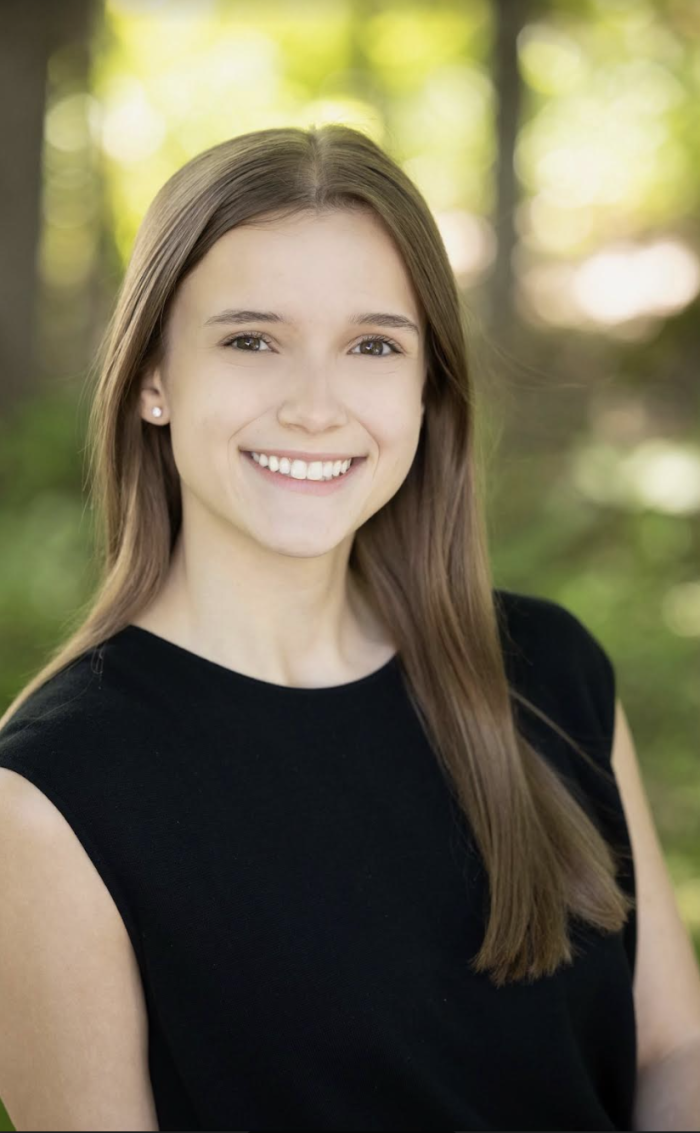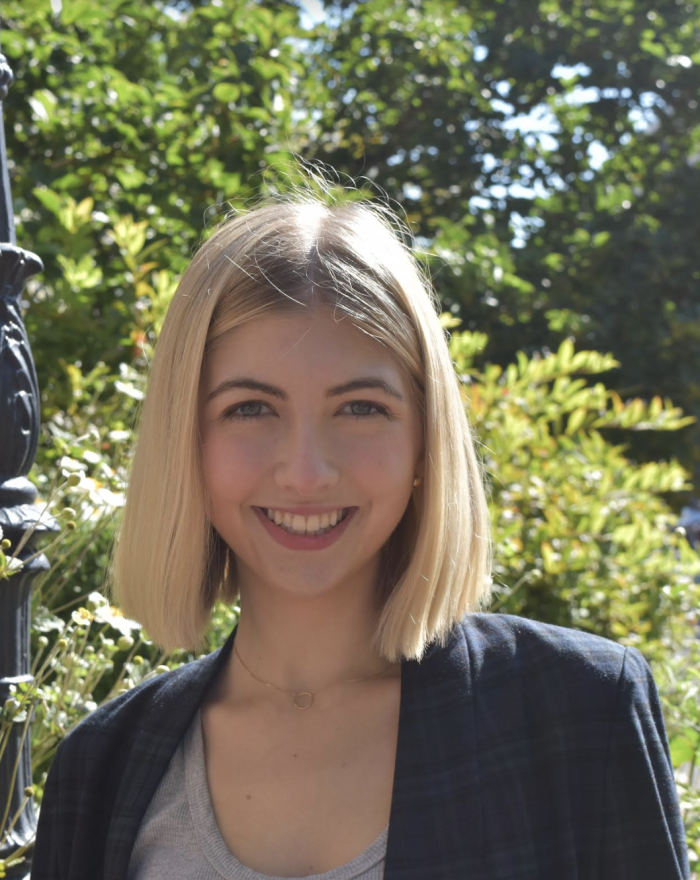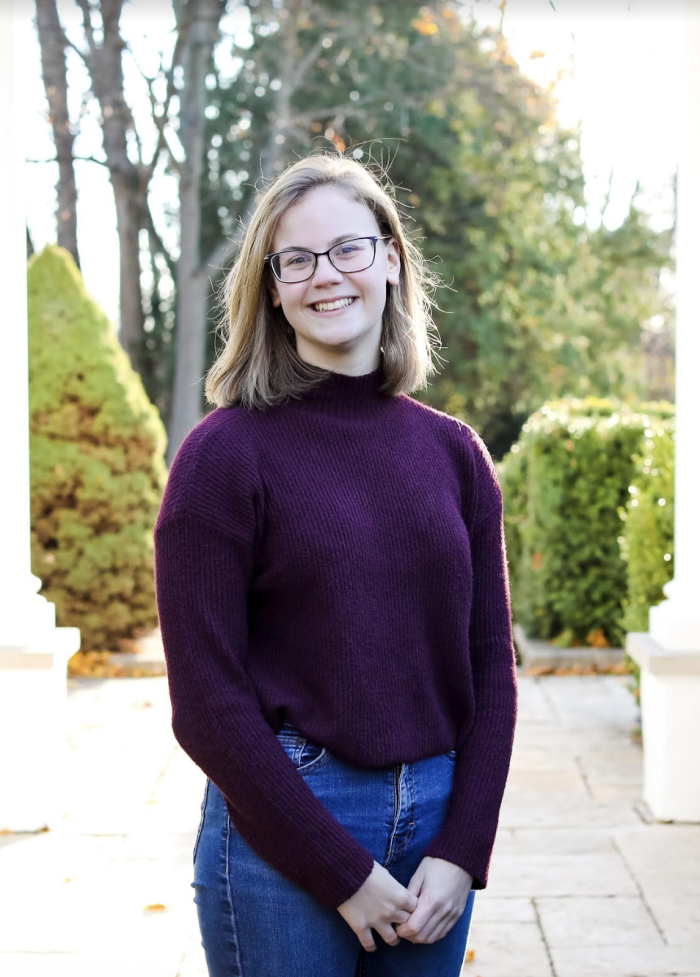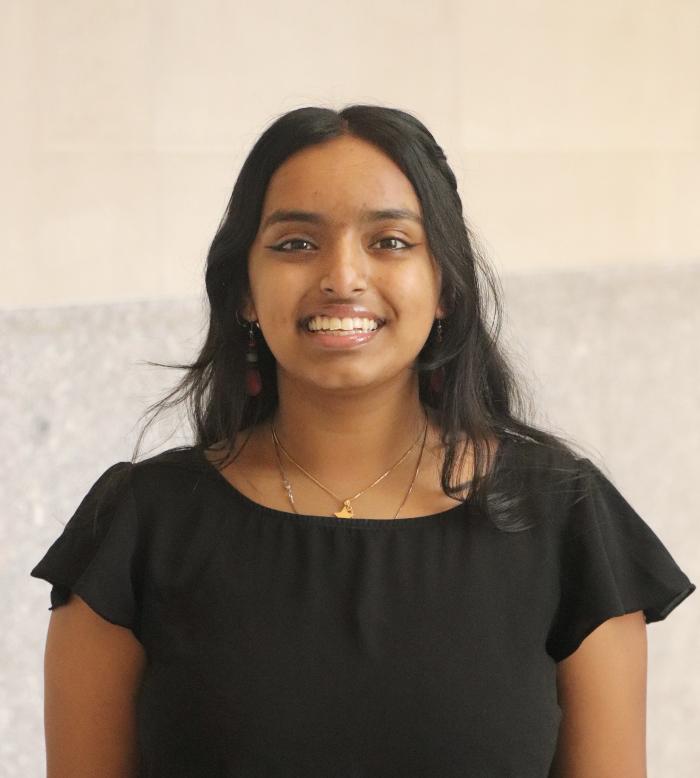2024-2025 Enosinian Scholars
Abigail Gaetz
School: Elliott School of International Affairs
Major: International Affairs with a concentration in Conflict Resolution
Project Description:
In the wake of the 2016 Mueller report, the dangers of disinformation re-entered the U.S. media stream with a particular voracity and fervor akin to the Cold War era. The report detailed how Russian-backed disinformation campaigns riddled the American media landscape with misleading and false information to foment polarization. In the years after the report, academics warned of a new age of disinformation, one powered by new technology and backed by adversarial actors that stood to undermine democracy. However, some scholars suggest that the media may assign too much credit to these state actors and that disinformation networks are far more complex, consisting of nonstate actors and individual agents that seek to exploit divisive issues for profit, ideological ambition, or virality.
To understand the complexity of disinformation online, my research sets out to uncover the dynamics of disinformation networks and their relation to the state. I want to understand the agents behind the troll farms, clickbait pages, and dubious social media profiles; who they are, their connection to the state, and the motives behind their actions. Is there a discrepancy in how we attribute disinformation campaigns? Are disinformation agents a byproduct of the information economy, a consequence of the new age of influence operations, or both? What are the goals behind these campaigns, and are the agents successful? Through the Enosinian Scholars Program, I will work to develop a method for analyzing known disinformation cases in order to understand the dynamics of the misinformation ecosystem and answer these questions.
Ana Arledge*
School: Columbian College of Arts and Sciences
Majors: Dance; Public Health
Project Description:
This project investigates relationships between the modern dance choreography of Merce Cunningham and interpretations of his work by contemporary dance practitioners. Through embodied exploration of the relationship between Cunningham's technique and contemporary creations, I ask: How do dance practitioners integrate Cunningham's pedagogical approaches into teaching and choreographic methods? My research will emphasize the importance that future historical records will place on subsequent generations of Merce Cunningham’s lineage to explore techniques, which build upon his original paradigm shift while preserving an artistic influence authentic to the founder. To continue Cunningham’s global impact into perpetuity, one must analyze how his innovation shaped the past to understand how a century of work will inform the way choreographers interpret his historically influential techniques in the future. I will devote time to engage in the Cunningham technique and embody the choreography which will result in a staged work with the working title, Interpretations. This final performance will represent how contemporary choreographers and performers draw inspiration from Cunningham's principles while adapting them to evolving artistic contexts.
The Merce Cunningham Trust provides extended research materials by way of digital preservation (Dance Capsules) through an array of assets essential to the study and reconstruction of Cunningham’s choreographic work. Demonstrated on stage and in the studio, the Cunningham Technique is distinctive in the modern dance lexicon and influences contemporary dance practice because the principles are adaptable to current artistic contexts. Since one can no longer learn from the founder, training remains as interpretations of second and third-generation instructors. The frequent practice to preserve historic dance techniques is the formation of a trust, and the Merce Cunningham Trust licenses instructors who are part of Cunningham’s direct lineage of trainees to continue the founder’s principles. Through this project, I aim to explore the endurance of Cunningham's legacy over the last century and how his work continues to shape the landscape of contemporary dance beyond his lifetime.

Anna Razvi*
School: Milken Institute of Public Health
Major: Public Health with a Pre-Medical Professional concentration
Project Description:
Ovarian cancer poses concern for women’s health, a major focal point in the field of public health. Moreover, there is a wide racial disparity in ovarian cancer outcomes, with Black women less likely to live longer following a diagnosis compared to their White counterparts (National Cancer Institute, 2020). Thus, research and treatment development for the condition is critical to address these disparities and achieve health equity for women of color. The aim of this proposed thesis is to investigate the biological pathways involving TP53 with the aim of elucidating unknown mechanisms under different cancer drug conditions in order to establish potential targets for cancer treatment. Such drugs include Nutlin-3a, which acts as a competitive inhibitor of the MDM2 active site, enabling a reduction in the degradation of p53 without damage to the cell. By analyzing the effects of such drugs, different strategies to increase p53 levels in order to restore cell growth regulation may be discovered. Moreover, the interaction between p53 and key regulatory proteins like MDM2 will be analyzed under different treatment conditions to comprehend the complex molecular landscape of high-grade serous ovarian cancer. Through the integration of laboratory techniques and computational analysis, this thesis aims to provide valuable insights into the mechanisms related to mutant p53 and contribute to the development of targeted therapies for this aggressive cancer subtype. Ultimately, this research has the potential to improve treatment outcomes and quality of life for patients by identifying novel therapeutic targets and strategies.
Caroline Gilmore*
School: Elliott School of International Affairs
Major: International Affairs with a concentration in Conflict Resolution
Project Description:
How do far-right women influencers use social media to portray themselves to audiences? How do the conservative young women in their audience perceive these influencers and their own online engagement?
My research project “Posts and Politics” examines the relationship between people’s social media habits and their political activism in the offline world. I hope to assess the extent to which social media content affects an individual’s political activism and worldview. Social media can be a factor in political polarization, but little is known about how young women, specifically, experience Instagram’s algorithm as they form their political worldviews. Through a mixed-methods approach that combines qualitative textual analysis of social media posts and content analysis of data derived from semi-structured interviews, my thesis project will develop a complete picture of the meaning-making between far-right influencers and their audiences.
Maggie Larson*
School: Columbian College of Arts and Sciences
Major: Political Science
Project Description:
Since 1997, the Supreme Court has used a test articulated in Washington v. Glucksberg, 521 U.S. 702, to evaluate the nature of fundamental unenumerated rights under the 14th Amendment. This test requires that rights must be “deeply rooted in this Nation’s history and tradition” in order to be fundamental and thus worthy of constitutional protection. The Glucksberg test aimed to limit judicial discretion in the realm of fundamental rights, yet the last twenty five years of Supreme Court jurisprudence tells a different story – one driven by discretion. This project aims to uncover the theoretical applications and practical effects of the Glucksberg test, as well as other jurisprudence rooted in “history and tradition,” by analyzing the decisions of the Supreme Court, federal circuit and district courts, and state courts. In this era of American history, where there are few ideals more powerful than fundamental rights and where the presence of those rights rests on the discretion of nine justices, I aim to discover the true consequences of the “history and tradition” model of fundamental rights.
Ritika Sinha-Chaudhuri*
School: Columbian College of Arts and Sciences
Majors: Political Science with a Public Policy Focus; Economics
Project Description:
The Supreme Court is a central pillar of American democracy and the justice system. The justices of the court, who are selected by presidents and are appointed for indefinite, lifetime terms, are uniquely positioned to influence American politics and are given the imperative of protecting the civil and human rights of all. In the last 25 years, cases have become increasingly associated with partisan issues, from Bush v. Gore in 2000 to Dobbs v. Jackson Women's Health Organization in 2022. Justices must be impartial, especially politically, when making their decisions, but do the justices’ ideologies influence their case citations?
The objective of my proposed thesis is to analyze the impact of partisanship in the role of Supreme Court citations. Specifically, I hope to conduct a research project to determine whether there is a correlation between the cases cited by Supreme Court justices of similar ideologies or parties. The analysis will encompass Supreme Court cases from Bush v. Gore (December 2000) to December 2024, providing a 25-year data span. The project will consist of multiple phases and will begin with data collection and sorting. Data will be collected on several variables pertaining to each of the justices that have served during and since December of 2000 and the cases that have transpired after that. This data will be collected in part manually, and in part, via a coding script that will strip and collect data from text citations of all the relevant cases. The next phase will be running regressions, statistical analyses, and cluster mapping on the complete data set to see what trends or patterns emerge. I am hypothesizing that partisanship will lead to a clustering of cases, specifically in that justices of similar ideologies cite similar cases.
Samhita Dulam*
School: Elliott School of International Affairs
Majors: International Affairs with an International Economics concentration; Economics
Project Description:
Is nature an entity subject to rights itself? Do humans have any, and to what extent, ownership over the environment? Through the Enosinian Scholars Program, I am honored to have the opportunity to craft a thesis that aims to investigate these questions and more as well. I was inspired to construct a thesis paper for my senior-year Honors thesis that centers around the political, environmental, and ethical debates surrounding Colombia’s 2018 Supreme Court case “Demanda Generaciones Futuras v. Minambiente” (“Future Generations v. Ministry of the Environment and Others”). Within this Supreme Court case, Colombian youth plaintiffs argued for the protection and restoration of the Colombian Amazon, explicitly from climate change and deforestation. More precisely, I
would like to explore this issue in regard to the Universal Declaration of Human Rights (UDHR) document, which entails fundamental rights that all humans are entitled to receive. In this Supreme Court case, the youth plaintiffs claimed that they have fundamental rights to a healthy environment, and I would like to consider, in my thesis, what rights do humans have pertaining to the environment and if the natural world holds any essential protections itself.
*Member of the University Honors Program







